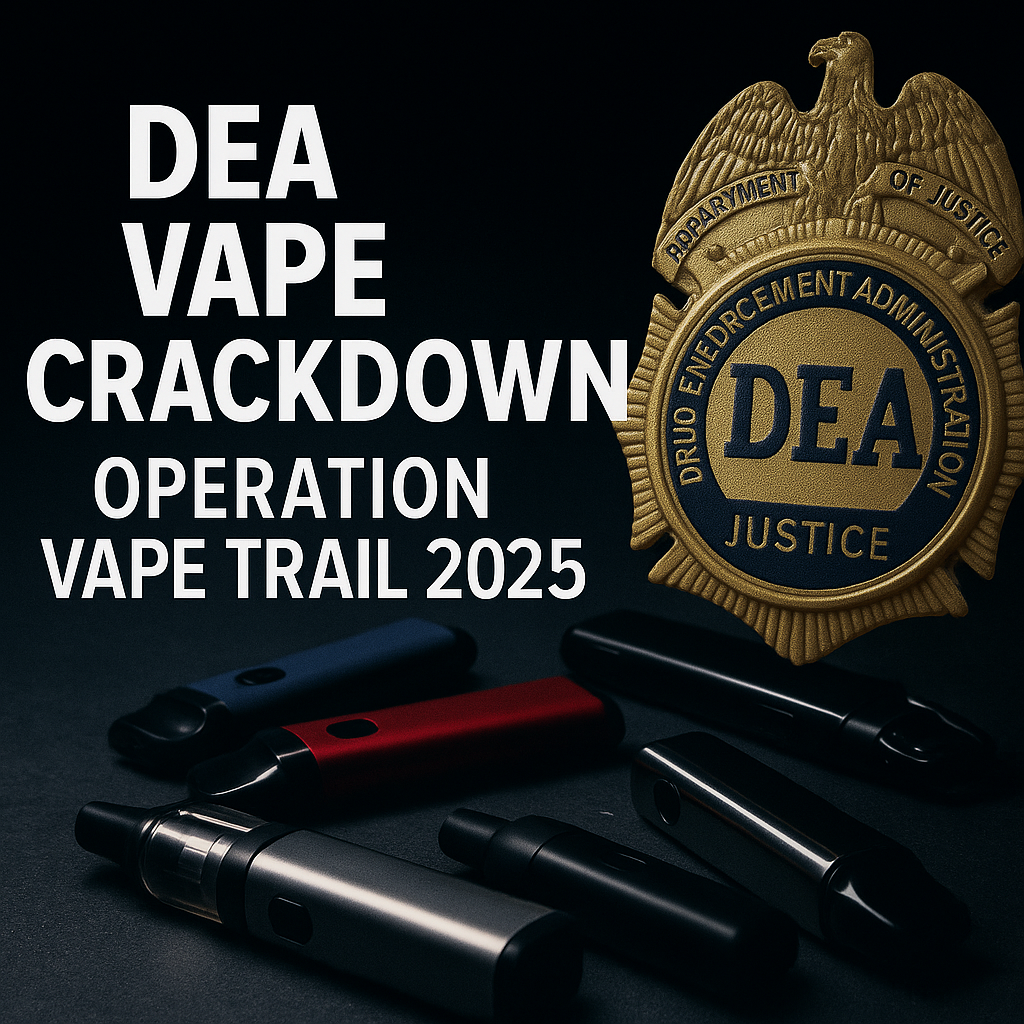DEA Crackdown on Vaping: What “Operation Vape Trail” Means for Vape Shops
Introduction:
The Drug Enforcement Administration (DEA) has joined a growing list of federal agencies in the Trump administration’s crackdown on vaping, launching “Operation Vape Trail”. This week-long enforcement surge led to the seizure of more than 2.3 million vape devices, cartridges, and related products, sparking controversy across the vaping industry.
While U.S. officials frame these actions as public health measures, many argue they unfairly smear legitimate vape shops, echoing concerns seen in Canada whenever vaping and illegal substances are conflated. At Dragon Vape Ontario, we break down what this means for vapers and how it compares to the regulated Canadian vape market.
Inside Operation Vape Trail
The DEA described Operation Vape Trail as a “collaborative enforcement effort” alongside the DOJ, DHS, HHS, and FDA. Over 106 people were arrested, and millions of dollars in assets were seized.
However, much of what was confiscated wasn’t related to nicotine products at all. Reports suggest most of the seized goods were cannabinoid products, kratom derivatives, and other substances, many of which are federally legal. Despite this, the DEA press release repeatedly associated these seizures with “vape shops,” creating a misleading link between nicotine vaping and illegal drug distribution.
This distinction matters, especially in markets like Canada, where vape shops primarily sell nicotine vapes, refillable pod systems, and e-liquid Canada-wide for adult smokers seeking alternatives.
From “Save Vaping” to Crackdowns
During his election campaign, Donald Trump promised to “save vaping.” Instead, his administration has unleashed a wave of FDA marketing denial orders, DOJ raids, and DEA seizures.
FDA Commissioner Martin Makary, known for his anti-vaping rhetoric, has doubled down on attacks against vape shops, often linking them to youth use and illicit substances. Yet, in many cases, the highlighted “raids” involved marijuana plants, cocaine, and firearms, not nicotine vaping products.
For Canadian vapers, the message is clear: while the U.S. struggles with regulatory overreach, Canada’s market—though tightly regulated still allows access to flavored vapes, nicotine vapes, disposable vapes, and refillable pod kits through trusted vape shops Ontario and nationwide.
Why Canadian Vapers Should Pay Attention
Even though this crackdown is U.S.-specific, it highlights the ongoing stigma facing the vaping industry globally. By blurring the line between vape shops and illicit drug operations, agencies risk misleading the public and damaging legitimate businesses.
In Canada, Health Canada regulations govern vape juice, e-liquids, and nicotine vapes with clear packaging, excise stamps, and product limits. Reputable retailers like Dragon Vape operate fully within these rules, providing safe, legal vaping devices for Canadian adults.
As U.S. enforcement escalates, Canadian vapers should continue supporting licensed vape shops in Ontario and across Canada that prioritize compliance, transparency, and customer safety.
Conclusion:
The DEA’s “Operation Vape Trail” is another chapter in the Trump administration’s aggressive stance against vaping. While framed as protecting youth, these raids often target products unrelated to nicotine and unfairly implicate vape shops.
At Dragon Vape Ontario, we remain focused on offering Canadians affordable, compliant, and high-quality vape products from disposable vapes and refillable pod systems to e-liquid flavors and vape pens Canada-wide.



